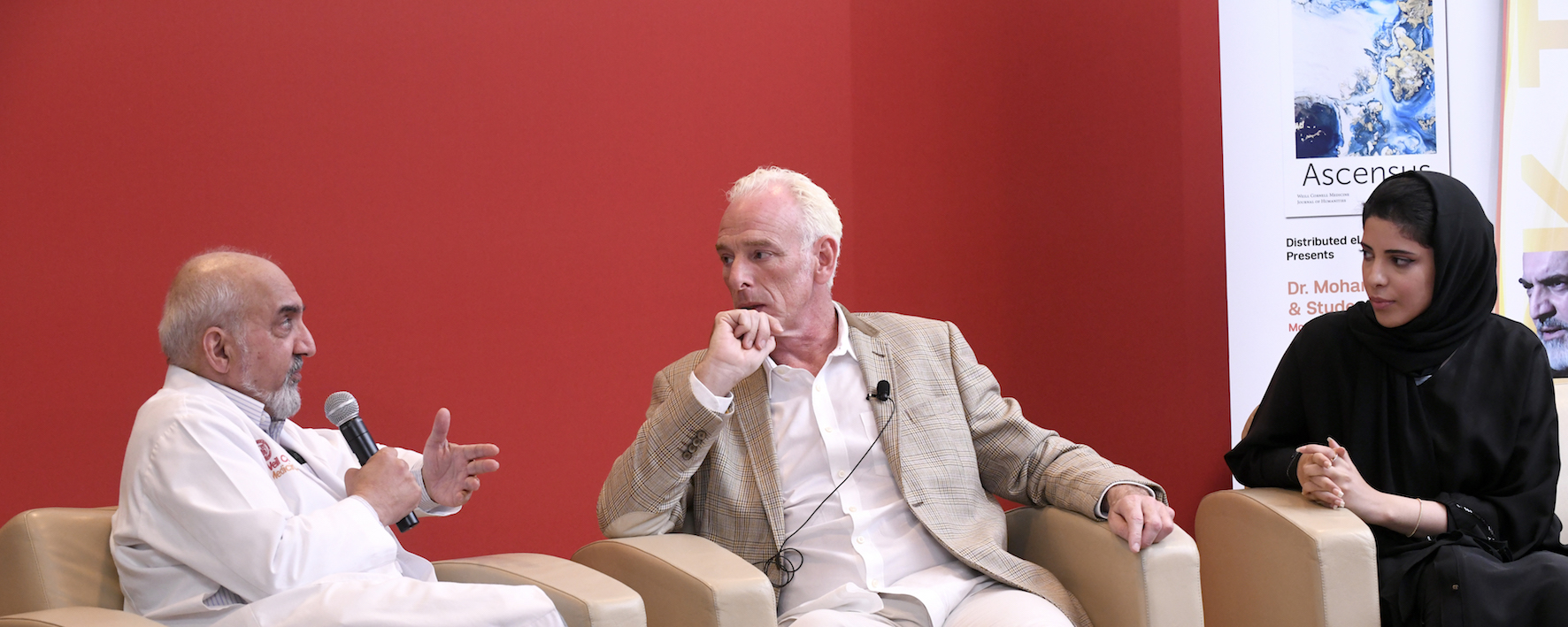Are you a poet, but you just don’t know it?
 Dr. Mohamud Verjee, Dr. Rodney Sharkey and Hanof Ahmed discuss 'Ascensus, A Journal of Humanities'.
Dr. Mohamud Verjee, Dr. Rodney Sharkey and Hanof Ahmed discuss 'Ascensus, A Journal of Humanities'.
Budding artists, writers and photographers are being asked to submit their work for an annual volume of poetry, essays, stories and art.
The challenge was laid down to students, faculty and staff at WCM-Q at the latest Book Talk event, held by the deLib team and moderated by Dr. Rodney Sharkey, which heard WCM-Q’s Dr. Mohamud Verjee discuss Ascensus, A Journal of Humanities, an annual collection of work published by Weill Cornell Medicine in New York.
Last year’s edition – the seventh volume published – contained poetry by Dr. Verjee, along with a painting and example of Arabic calligraphy by the Class of 2019’s Hanof Ahmed, and a photograph taken by Dr. Sohaila Cheema, director of WCM-Q’s Institute of Population Health. Hanof has said that not only does her artwork allows her to switch off from the stresses of daily life but it affords her a different perspective when viewing x-rays or ultrasounds.

Jamie Gray, director of the Distributed eLibrary (deLib), said that she was pleased that the latest Book Talk provided an opportunity to highlight the talent within the WCM-Q community.
“Ascensus is unique in that it welcomes contributions from across the WCM-Q community,” she said. “Our Book Talk series allows people to learn from the experiences of those who have been published, regardless of format or content. We hope that this event will inspire contributions to this year’s Ascensus.”
Dr. Verjee, who is associate professor of family medicine in clinical medicine and assistant dean for medical student affairs at WCM-Q, has now called upon more members of the college community to submit work and realize the satisfaction of being published.
He also explained how the humanities have a vital role to play in the healthcare sector.
“As much as we would like to think that medicine is an exact science,” he said, “it is much more nuanced than that; at its heart it relies upon relationships, not just the one that exists between a physician and patient, but also the interprofessional relationships that must exist and work if we are to offer people treatment.
“The arts and humanities remind us all that we live and work in the real world. Although many of the therapies and remedies that we use will have been created in the laboratory environment, the hospital s and primary healthcare centers are places where life is at its most vital and where all of human emotion is often laid bare. The arts are a reminder that although clinical interventions are necessary when treating patients, so are sympathy, empathy and humanity.”
Dr. Verjee said that anyone wishing to submit a piece of art or writing to Ascensus should email it to him at mov2002@qatar-med.cornell.edu before May 15.